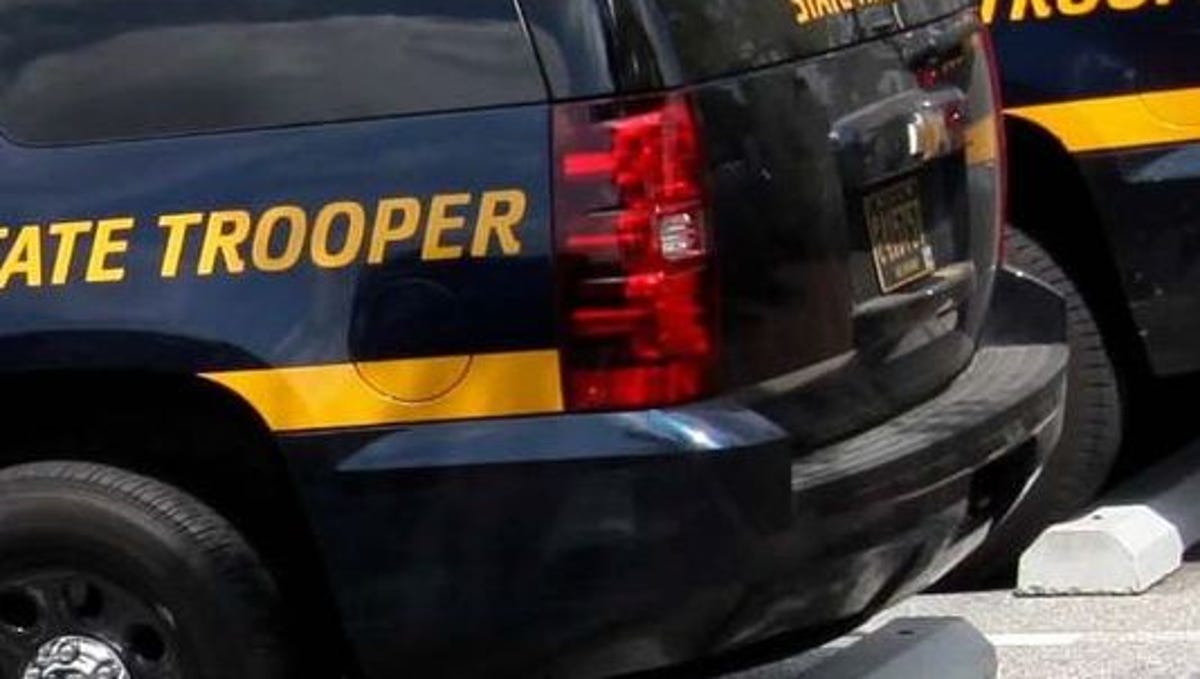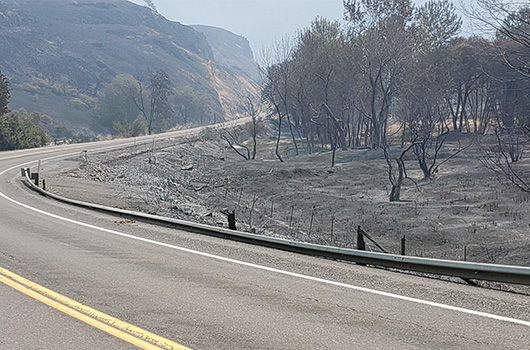Wisconsin
A Reckoning for Fake Elector Masterminds in Wisconsin
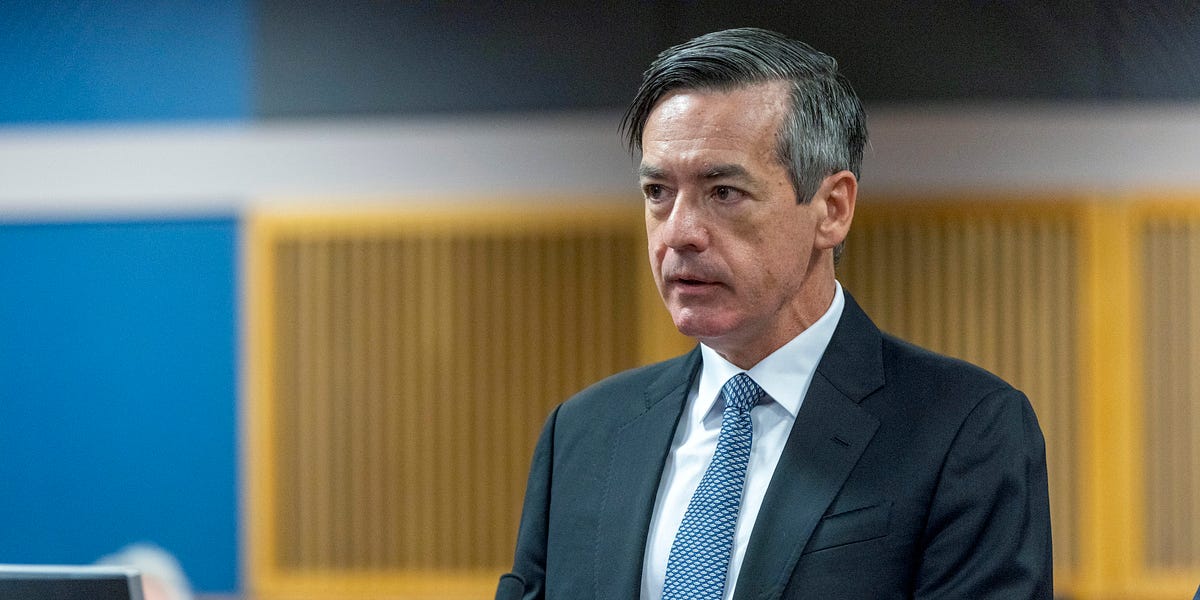
WISCONSIN ATTORNEY GENERAL JOSH KAUL was ready for the question: Why was his office only just now getting around to criminally charging three individuals who orchestrated a plan to steal the 2020 election for Donald Trump, more than three years after it happened and months before the former president will face voters as a convicted felon?
“Our focus in any investigation and any prosecution is not on the speed with which something’s done,” he said during a press conference last week on the steps of the Wisconsin State Capitol, hours after the charges were announced. “It’s on doing high-quality investigations, conducting high-quality prosecutions, and getting things right. That’s the approach we have taken. That’s the approach we will continue to take, both in this case and in any other cases that we investigate or prosecute.”
The three men charged in Wisconsin for conspiracy to commit forgery, a felony punishable by up to six years in prison, are former Trump attorneys Jim Troupis and Kenneth Chesebro, and former Trump campaign staffer Mike Roman. Troupis is a former judge appointed to the bench by Republican Governor Scott Walker. Chesebro is a Wisconsin native widely known as the architect of the fake electors scheme. And Roman was Trump’s director of Election Day operations when ballots were cast in 2020.
Kaul noted that none of the three is running for office and all are entitled to the presumption of innocence. He also said, eight times in as many minutes, that the investigation is “ongoing.” He vowed, “We will continue to move forward based on the facts, the law, and the best interest of justice.”
The fake electors scheme, hatched in Wisconsin, played out in seven states. In two of them, New Mexico and Pennsylvania, the certificates declaring Trump the winner included explicit provisos that made clear they would be valid only if Trump prevailed in subsequent litigation. No charges have been filed or are expected in those two states.
In the remaining five states—Michigan, Georgia, Nevada, Arizona, and Wisconsin—there was no such conditional wording and evidently no conditional intent. Charges against the participants have now been filed in all five of those states. In Georgia, Chesebro pleaded guilty to a single felony charge of conspiracy and was sentenced to five years’ probation. In Arizona, Roman has been charged with nine felonies, along with Trump’s former chief of staff Mark Meadows, for their roles in that state’s fake electors scheme. On Friday, both pleaded not guilty; a trial has been set for October 31. Roman is also facing charges in Georgia’s elections interference case, now on hold as the courts review whether District Attorney Fani Willis ought to be allowed to prosecute the case.
Wisconsin is different from these other states in that the only people charged—so far—are the Trump campaign officials who hatched and implemented the fake electors plan, not any of the state’s ten fake electors. In Arizona, Michigan, and Nevada, all but one of the fake electors were charged; in Georgia, three fake electors were charged along with Trump, while others cut immunity deals.
It appears as though Kaul’s office is not unsympathetic to arguments that Wisconsin’s fake electors were “tricked” into believing that the document they signed would not be used unless a court sided with Trump. Its 47-page criminal complaint quotes media accounts where this is argued, including a 60 Minutes segment that aired in mid-February. It shows Andrew Hitt (referred to in the complaint as “Individual B”), then-chairman of the Republican Party of Wisconsin, saying he was told the certificate would “only count if a court ruled in our favor.”
Troupis, Chesebro, and Roman recognized no such constraint. As the complaint spells out, they eagerly proceeded with plans to use the certificates to overturn the election result without the concurrence of any court. And, it appears, this determination was cemented after Troupis and Chesebro met with Donald Trump in the Oval Office.
ACCORDING TO THE COMPLAINT, the idea of convening groups of fake electors was raised in a memorandum dated November 18, 2020 that Chesebro sent to Troupis, who was working as a lawyer for Trump’s Wisconsin campaign. They then proceeded to enlist others and hammer out the details.
On December 7, 2020, Troupis sent a copy of the memorandum to a Trump campaign consultant referred to in the complaint as “Individual A.” Troupis’s accompanying message stated that this memo was “prepared for me on appointing a second slate of electors in Wisconsin. There is no need for the legislators to act. The second slate just shows up at noon on Monday and votes and then transmits the results. It is up to Pence on Jan 6 to open them.”
The next day, December 8, Chesebro sent Troupis an email with further thoughts about “how leverage might be exerted” during the joint session of Congress on January 6, 2021. He added: “Court challenges pending on Jan. 6 really not necessary.” Troupis responded: “This is an excellent summary of the end game. Thank you.”
And on December 9, “Individual A” asked Troupis to prepare a “sample elector ballot” for Wisconsin, Pennsylvania, Georgia, Michigan, Arizona, Nevada and New Mexico. According to the complaint, “Defendant Troupis forwarded this email to Defendant Chesebro and others.”
The fake electors convened, in Wisconsin and these other states, on December 14, 2020. Chesebro attended the Wisconsin meeting in the state capitol.
Two days later, on December 16, Troupis and Chesebro flew to Washington for a meeting at the White House with then-President Trump. The meeting in the Oval Office had been arranged by Reince Preibus, Trump’s former chief of staff. Prior to this meeting, Troupis sent Chesebro a note: “Ken, Just a reminder: Reince was very explicit in his admonition that nothing about our meeting with the President can be shared with anyone. The political cross-currents are deep and fast and neither you or I have any ability to swim through them. Jim.”
The New York Times, in its article on the released documents, reported that Chesebro gave an account of this meeting to prosecutors in Michigan who were investigating that state’s fake electors scheme. He recalled telling Trump “we had until January 6 to win.” Chesebro also said that Priebus warned him and Troupis “not to get Mr. Trump’s hopes up about his chances for victory,” as the paper put it, adding, “but Mr. Chesebro acknowledged he had not listened to that advice.”
A source with knowledge of this meeting claimed to the paper it was a mere “photo op” arranged at Troupis’s request. But it appears that Chesebro and Troupis did indeed manage to “get Mr. Trump’s hopes up,” and that paved the way for what followed.
At 1:42 a.m. on December 19, 2020, Trump tweeted his now-infamous call to action: “Big protest in D.C. on January 6th. Be there, will be wild!” A few hours later, Chesebro sent a message to Troupis in response: “Wow. Based on 3 days ago, I think we have a unique understanding of this.”
FOR YEARS, JEFF MANDELL of the progressive Madison law firm Law Forward has been pushing Kaul and others to take action against the fake electors and the lawyers who organized them. In May 2022, the firm sued Troupis, Chesebro, and ten false electors, accusing them of breaking multiple laws, including creating counterfeit public records and illegally interfering with the election. The lawsuit led to two settlements.
The first, announced in December 2023, was with the ten fake electors; they acknowledged that the certificate was created as “part of an attempt to improperly overturn the 2020 presidential election results.” The second, announced in March, was with Troupis and Chesebro; they paid the law firm an undisclosed sum and released a 1,439-page file of primary documents, but made no admissions of wrongdoing.
In an email, Mandell says that while he has not spoken to anyone at Wisconsin DOJ about this, “it is clear to me from reading the complaint” that the Trump campaign consultant mentioned a half-dozen times as “Individual A” is Boris Epshteyn. Epshteyn has also been identified by the New York Times as “Co-Conspirator 6” in Special Counsel Jack Smith’s indictment of Trump for conspiring to overturn the 2020 election. Among other things, Co-Conspirator 6 took part in a conference call in which Trump’s lawyer Rudy Giuliani pressed electors in Pennsylvania to take part in the fake electors scheme.
In 2021, Epshteyn was arrested in Arizona after being accused of groping two women at a nightclub. (“I have no idea what’s going on. I have no idea who these women are,” Epshteyn told police. Remind you of anyone?) He ultimately pleaded guilty to disorderly conduct.
For Mandell, the charges were welcome news.
“Wisconsin voters have been waiting for accountability for more than three years, seeking to hold responsible for their actions both the fake electors and those who helped them perpetrate this scheme,” he said after the charges were announced. “This coordinated and deliberate effort to subvert democratic votes must not happen again. Today is a good step towards protecting our democracy and ensuring accountability.”
THE CRIMINAL COMPLAINT filed by Kaul’s office against the three Trump associates includes references to communications that were not included in the document dump secured by Law Forward. Mandell said the settlement included the release of “all text exchanges between Chesebro and Troupis.” A key text message from December 17, the day after the Oval Office meeting with Trump, was sent by Chesebro to Roman and Epshteyn without Troupis being included; hence, it “falls outside of that agreement.” (No wonder it took the Wisconsin DOJ so long to pull its case together.)
That text message from Chesbro reads:
Things might have been different if we’d won Wisconsin, and that had led other courts, and state legislatures, to take a closer look, but now the idea of the President of the Senate [Mike Pence] throwing a wrench into the Electoral Count Act process seems even less plausible than before, for both legal and political reasons.
But I think the Act can be weaponized.
In response to this missive, Epshteyn asked Chesebro: “What’s the bottom line?” Chesebro answered: “If the Trump campaign were to weaponize the Electoral Count Act in this fashion it could put the Biden camp in a no-win situation.”
The concept of “weaponization,” admitted to as a goal by these pro-Trump plotters, is now being used widely by Trump allies to avoid accountability. Here’s how Wisconsin Republican Sen. Ron Johnson reacted to news that Kaul had brought charges against the three Trump associates:

It’s hard to imagine that Johnson himself is not worried about facing charges for his role in this scheme. He has publicly claimed he had no idea what was in the envelope from Troupis that he attempted to deliver to Pence. But the documents unearthed by Law Forward tell a different story.
In an email to Chesebro on December 8, 2020, Troupis wrote that he “spoke with Senator Johnson late last night about the Pence angle at the end,” adding, “Just wanted to take his temperature.” And in a text to Chesebro on the morning of January 6, Troupis said he had “been on phone w Mike Roman and Senator Johnson and Johnson’s COS to get an original copy of Wi slate to VP.” Johnson did try to deliver the original copy of the fraudulent certificate, but an aide to Pence rebuffed this attempt.
Chesebro, Troupis, and Roman are due in court on September 19. In the meantime, Troupis continues to serve as an adviser on a state judicial ethics panel, the Wisconsin Judicial Conduct Advisory Committee. It is a position he was reappointed to in 2023, long after his role in the fake electors scheme was known, by what was at the time a majority-conservative Wisconsin Supreme Court.
“Troupis should have stepped down or been removed from his seat overseeing judicial ethics months ago when he admitted to his role in the fake elector plot of 2020,”said Mike Browne, deputy director of A Better Wisconsin Together, an advocacy group that backs Democrats, in a statement last week. “That he now has been formally charged at a felony level for his schemes yet continues to advise on judicial ethics in Wisconsin is wholly unacceptable.”
Meanwhile, one of Wisconsin’s ten fake electors, Robert Spindell, continues to sit on the Wisconsin Elections Commission, which will decide contested issues in the upcoming election.
As it prepares to host the Republican National Convention next month in Milwaukee, the state of Wisconsin still has a lot of cleaning up to do.

Wisconsin
Fox News Poll: Trump hits 50% in Wisconsin, edges Harris by just 1 point

At this same point in the election cycle four years ago, Joe Biden was ahead of Donald Trump by 9 percentage points among Wisconsin voters in a two-way presidential matchup. Now, just days after the Republican National Convention ended in Milwaukee, a new Fox News survey shows Wisconsinites give the advantage to Trump over Vice President Kamala Harris — by 1 point.
Harris receives 49% support to Trump’s 50%. In April, it was 48% each for Biden and Trump, and it was also tied in January (47% apiece). In June 2020, Biden was at 49% to Trump’s 40%.
Trump’s edge is mainly due to an expanded 14-point lead among men, up from an 8-point lead over Biden in April. He is also favored over Harris among White men without a college degree (by 20 points), rural voters (+15), and White voters (+2).
Harris receives a bit more support among Democrats (96%) than Trump gets among Republicans (93%), but he makes up the difference by having a 4-point advantage among Independents.
HARRIS’ SHIFT FROM TOUGH-ON-CRIME PROSECUTOR TO SOCIAL JUSTICE ADVOCATE FACES SCRUTINY FROM CONSERVATIVE GROUP
Some of Harris’ best groups include urban voters (+19 over Trump), Whites with a college degree (+18), and suburban women (+13). Her numbers roughly match or are a bit higher than Biden’s were in April among Whites without a college degree (+5), Independents (+5), voters under 35 (+4), women (+3), Democrats (+1), Whites (+1), and those ages 65 and over (-1).
The biggest shift is among “double haters” (voters with unfavorable views of both Trump and Biden). Trump was ahead by 1 point in April, but they now favor Harris by 25 points. There are too few Harris-Trump double haters to breakout by vote preference.
Former US President Donald Trump during a campaign event at Trump National Doral Golf Club in Miami, Florida, US, on Tuesday, July 9, 2024. (Eva Marie Uzcategui/Bloomberg via Getty Images)
Trump is favored by 3 points among new voters (haven’t voted in four most recent general elections), and union households go for him by 2 points, which is different from what we see in a couple of other northern industrial states. Union voters prefer Harris by 6 points in Michigan and by 15 points in Minnesota.
Biden’s personal favorable rating was negative by 10 points in April and now he’s underwater by 12. It’s the reverse for Trump, who went from being underwater by 10 points to negative 5 in the new survey. Harris is more popular than both at 49% favorable and 49% unfavorable. JD Vance’s favorability is negative by 7 points, while 15% are unable to rate him.
TRUMP TO RETURN TO PENNSYLVANIA FOR FIRST TIME SINCE ASSASSINATION ATTEMPT
Fifteen percent of Wisconsin voters say they are getting ahead financially, up from 11% six months ago. Still, most continue to feel they are holding steady (41%) or falling behind (43%).
By far, the economy will be the deciding issue this fall. It’s the top priority for 37%, trailed by abortion and immigration at 15% each. All other issues are in the single digits.
Majorities of those prioritizing the economy and immigration back Trump (by 38 and 81 points respectively), while those putting abortion as their top issue prefer Harris by 78 points.
“This poll shows Harris in a slightly stronger position in Wisconsin than Biden based on personal favorability,” says Democratic pollster Chris Anderson, whose company Beacon Research conducts Fox News surveys along with Republican Daron Shaw. “However, with many voters feeling strained financially and union households breaking for Trump, she has work to do convincing voters they’ll be better off continuing with a Democrat in the White House.”
In a potential 5-way race, Harris and Trump tie at 46% each, with Robert F. Kennedy Jr. receiving 5%, and Jill Stein and Cornel West at 1% each. Support for Kennedy was 9% in April.
Kennedy takes more support from Trump (6%) than Harris (2%), but it evens out because the other candidates also take from her (3%).
The large 75% approval of Biden withdrawing from the presidential race is widespread, as it includes 88% of Democrats and two-thirds of Republicans (65%) and Independents (69%).
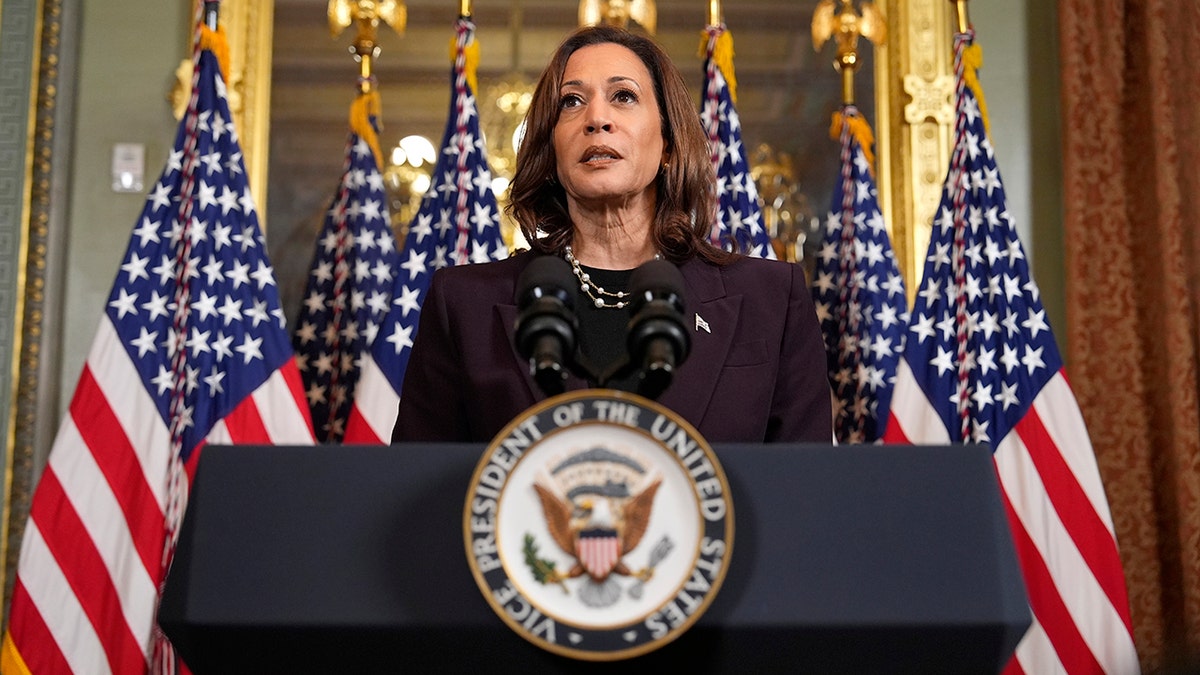
Vice President Kamala Harris speaks following her meeting with Netanyahu on Thursday. (AP/Julia Nikhinson)
That consensus disappears on the issue of Biden finishing his term: 92% of Democrats and 58% Independents think he should, while 57% of Republicans think he should resign. Overall, two-thirds think he should stick around.
In 2020, Biden won Wisconsin by 20,682 votes, less than one percentage point. Trump’s 2016 victory was also by less than a point (22,748 votes).
Poll-pourri
In the senate race, Democratic Sen. Tammy Baldwin leads likely Republican challenger Eric Hovde by a 54-43% margin, running 5 points ahead of Harris’ support in the presidential race. (The Wisconsin primary is August 13.)
More Trump supporters are ticket splitters, as 83% of his backers favor Hovde, while 96% of Harris supporters go for Baldwin.
CLICK HERE TO GET THE FOX NEWS APP
Overall, three-quarters of Wisconsin voters say they are extremely motivated to vote in the presidential election, and they split 50% Harris vs. 49% Trump. That’s because slightly more Harris supporters (76%) than Trump supporters (73%) say they are extremely motivated.

Former US President Donald Trump arrives to the Republican National Convention (RNC) at the Fiserv Forum in Milwaukee, Wisconsin, US, on Wednesday, July 17, 2024. The RNC chairman warned against complacency when his party concludes its official nominating jamboree this week with polls predicting ex-President Donald Trump prevailing over President Joe Biden in the November election. (David Paul Morris/Bloomberg via Getty Images)
Fully 84% of Wisconsin Democrats want Harris to replace Biden as their party’s nominee — no other candidate gets more than 2% support.
CLICK HERE FOR TOPLINE AND CROSSTABS
Conducted July 22-24, 2024 under the joint direction of Beacon Research (D) and Shaw & Company Research (R), this Fox News Poll includes interviews with a sample of 1,046 Wisconsin registered voters randomly selected from a statewide voter file. Respondents spoke with live interviewers on landlines (127) and cellphones (649) or completed the survey online after receiving a text (270). Results based on the full sample have a margin of sampling error of ±3 percentage points. Sampling error associated with subgroup results is higher. In addition to sampling error, question wording and order can influence results. Weights are generally applied to age, race, education, and area variables to ensure the demographics are representative of the registered voter population. Sources for developing weight targets include the American Community Survey, Fox News Voter Analysis, and voter file data.
Fox News’ Victoria Balara contributed to this report.
Wisconsin
Why are gas prices higher in Wisconsin this week?
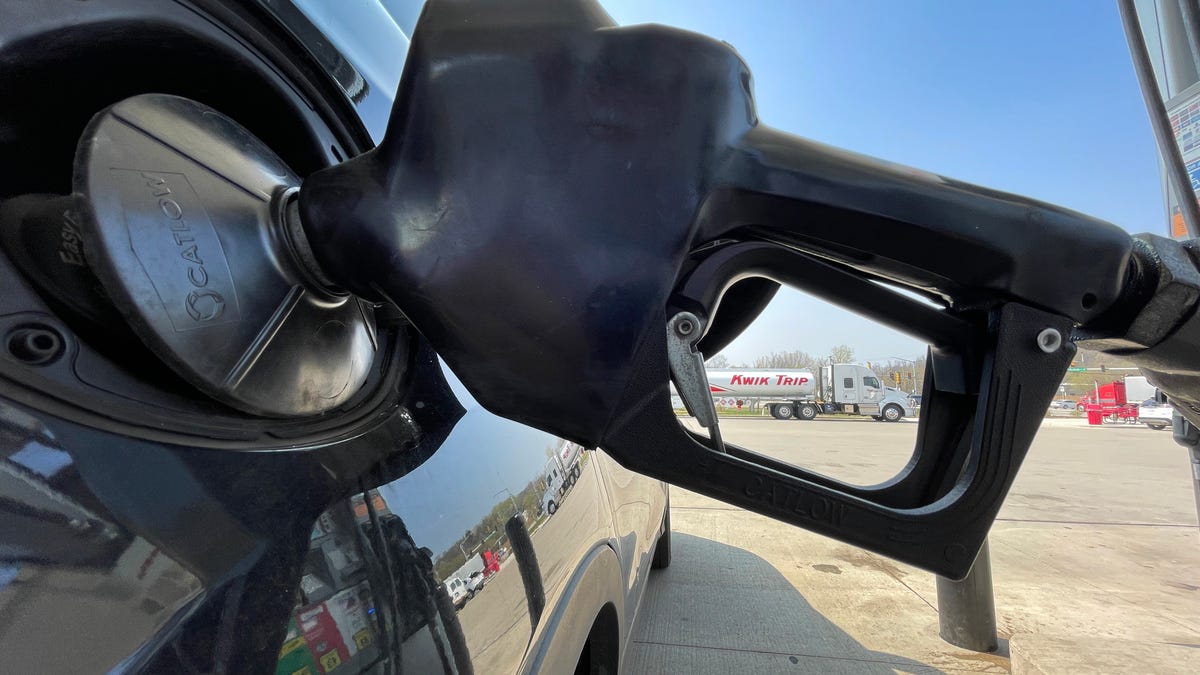
Kwik Trip is beloved Wisconsin gas station without store in Milwaukee.
Kwik Trip is more than just a gas station. It’s a grocery store. It’s clean public bathrooms. It’s friendly staff. But it’s also not in Milwaukee.
You might have noticed gas prices inched up when you visited the fuel tanks this week.
You’re not imagining it: gas costs are up across Wisconsin, with prices rising more than 17 cents on average in the last week, according to AAA.
Here’s why gas prices are surging and which Wisconsin cities are feeling it the most.
Why are gas prices higher in Wisconsin this week?
A storm-related outage at an ExxonMobil facility in Illinois may be to blame for rising gas prices across the Upper Midwest this week, AAA said in a news release Thursday.
The refinery in Joliet, Illinois lost power earlier this month after a tornado touched down in the Chicago area on July 16. The facility, which processes 248,000 barrels per day, was about 50 miles from the tornado and battered by heavy wind and rain.
As of July 17, Reuters reported the refinery would be down for at least a week with plans to power back up in “late July.”
However, while the outage drives up prices across the Midwest, falling oil prices in the U.S. may help steady costs, AAA spokesperson Andrew Gross said in the news release.
“In April, a barrel of oil was in the upper $80s, but today, it is $10 a barrel cheaper. That might mitigate any upward pressure on pump prices,” Gross said.
Which Wisconsin cities have highest gas prices?
Counties in eastern Wisconsin are generally seeing the highest gas prices, while counties in the western half of the state are seeing prices 10 to 30 cents below Friday’s national average of $3.52 per gallon, according to AAA’s daily average gas prices tracker.
Most Wisconsin cities have seen gas prices tick up in the last week. Listed below are the average gas prices for a regular gallon of gas in major Wisconsin cities on Friday, compared to a week ago, according to AAA. All prices are rounded to the nearest hundredth of a cent.
Average gas prices in Wisconsin cities on July 26:
- Milwaukee-Waukesha: $3.80, up from $3.45 last week
- Madison: $3.45, up from $3. 43 last week
- Appleton: $3.44, up from $3.30 last week
- Eau Claire: $3.24, up from $3.20 last week
- Fond Du Lac: $3.37, same as $3.37 last week
- Green Bay: $3.50, up from $3.36 last week
- Kenosha County: $3.83, up from $3.50 last week
- Oshkosh: $3.44, up from $3.37 last week
- Racine: $3.78, up from $3.44 last week
- Sheboygan: $3.47, up from $3.33 last week
- Wausau: $3.47, up from $3.38 last week
Wisconsin
NOAA, Biden-Harris Administration announce $1.45 million for joint Wisconsin, Minnesota, and Michigan project as part of Investing in America Agenda
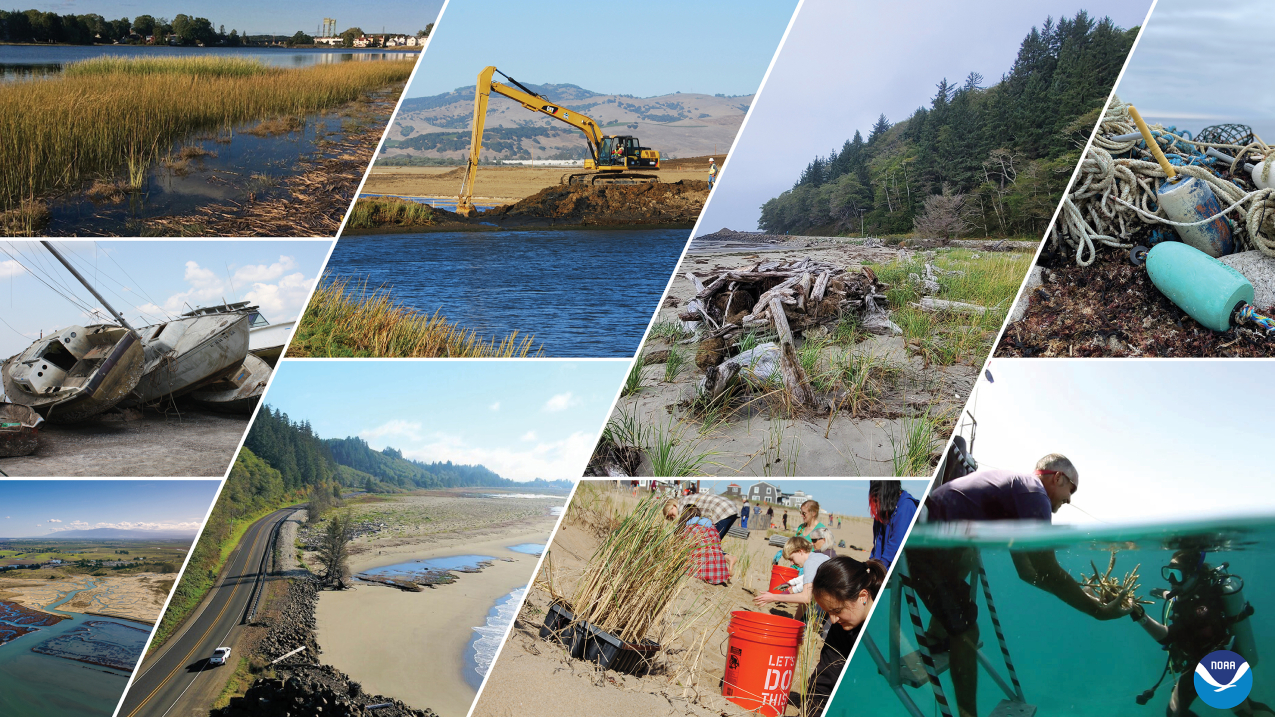
Today, Secretary of Commerce Gina Raimondo announced that the Department of Commerce and NOAA have recommended $1.45 million for a project involving Wisconsin to make the state’s coast more resilient to climate change and other coastal hazards. The project encompasses the Lake Superior Basin region of Wisconsin, Minnesota and Michigan. The awards are being made under the Biden Administration’s Climate Resilience Regional Challenge, a competitive, $575 million program funded through the nearly $6 billion total investment under the Biden-Harris Administration’s Inflation Reduction Act.
“As part of President Biden’s commitment to combating the climate crisis, we are investing $575 million to help make sure America’s coastal communities are more resilient to the effects of climate change,” said U.S. Secretary of Commerce Gina Raimondo. “As part of this historic investment in our nation’s climate resilience the Biden-Harris Administration is investing $1.45 million to help underserved communities in Wisconsin develop and implement new strategies to protect themselves from increased flooding and other impacts of climate change.”
Administered by the Department of Commerce and NOAA, the Climate-Ready Coasts initiative is focused on investing in high-impact projects that create climate solutions by storing carbon; building resilience to coastal hazards such as extreme weather events, pollution and marine debris; restoring coastal habitats that help wildlife and humans thrive; building the capacity of underserved communities and support community-driven restoration; and providing employment opportunities.
“Over the past decade, this area has seen, firsthand, the destructive impacts of climate change on lives and livelihoods,” said NOAA Administrator Rick Spinrad, Ph.D. “This funding will allow local governments and tribal communities in Wisconsin to address the problem of repetitive flooding, from identifying root causes to implementing long-lasting solutions.”
The recommended $1,451,065 in total funds for the project will be administered by the Northwest Regional Planning Commission. The project, Accelerating Natural Flood Management in the Lake Superior Basin, will be a joint effort encompassing areas of Wisconsin, Minnesota and Michigan hit hard by catastrophic, repetitive flooding (six federal disaster declarations between 2012 and 2022), with impacts to local communities and an extensive network of state, local, and tribally managed roads. Funding will be used to 1) identify how the loss of headwater wetland storage and floodplain connectivity is contributing to the flooding problem; and 2) implement high-impact, nature-based solutions to combat this flooding by restoring the natural hydrology. The root causes of flooding and potential restoration opportunities will be investigated using new approaches that integrate spatial and field-based assessments.
“Whether it’s flooding, drought, or extreme weather, communities across Wisconsin are dealing with the costly impacts of our changing climate. Our Inflation Reduction Act is making essential investments to make our communities safer and our infrastructure more resilient for the next generation,” said Senator Tammy Baldwin. “I was proud to support this investment for Northwest Wisconsin to protect the infrastructure families rely on and implement new solutions to address flooding.”
“With climate change causing more extreme weather events and devastating flooding across our state, building flood resilience through high-impact, nature-based solutions to protect our communities and our natural resources is a top priority for us in Wisconsin,” said Wisconsin Governor Tony Evers. “I’m grateful to the Biden-Harris Administration and NOAA for their support in these efforts and to the Northwest Regional Planning Commission and our partners for developing a program that will make a lasting difference for folks affected by flooding and on our region’s environmental footprint.”
Additional information is available on the Climate Resilience Regional Challenge website.
Climate, weather, and water affect all life on our ocean planet. NOAA’s mission is to understand and predict our changing environment, from the deep sea to outer space, and to manage and conserve America’s coastal and marine resources.
-

 World1 week ago
World1 week agoOne dead after car crashes into restaurant in Paris
-

 Midwest1 week ago
Midwest1 week agoMichigan rep posts video response to Stephen Colbert's joke about his RNC speech: 'Touché'
-

 News1 week ago
News1 week agoVideo: Young Republicans on Why Their Party Isn’t Reaching Gen Z (And What They Can Do About It)
-

 Movie Reviews1 week ago
Movie Reviews1 week agoMovie Review: A new generation drives into the storm in rousing ‘Twisters’
-

 News1 week ago
News1 week agoIn Milwaukee, Black Voters Struggle to Find a Home With Either Party
-

 Politics1 week ago
Politics1 week agoFox News Politics: The Call is Coming from Inside the House
-

 News1 week ago
News1 week agoVideo: J.D. Vance Accepts Vice-Presidential Nomination
-

 World1 week ago
World1 week agoTrump to take RNC stage for first speech since assassination attempt

